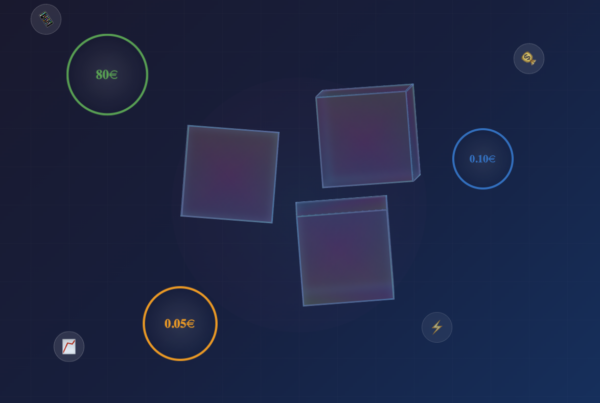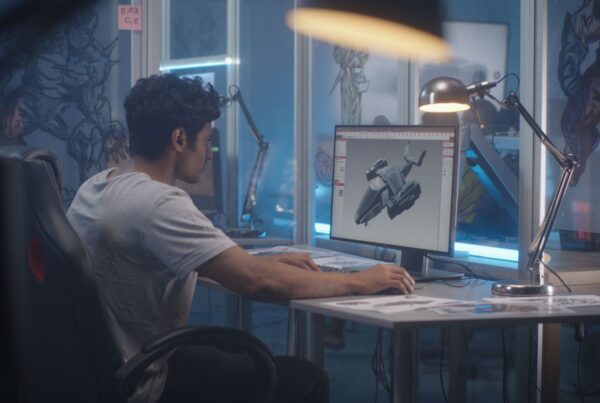The Metaverse and Web3 as a milestone in the Internet age
The question can be answered in several ways. Basically, it can be said that this is not quite the case. The Metaverse will bring our digital everyday life into the third dimension, with the Internet as a communication channel. However, it cannot be seen as a completely independent service, but rather as a successor to the mobile Internet as we know it today.
Although the metaverse is now at the forefront of digital trends, many still see it as a kind of virtual gaming platform. But unlike a video game, the metaverse doesn’t end when you leave it, it doesn’t pause and you can’t restart it like a game. Rather, this is a new digital reality that continues to run just like our real lives, like a virtual parallel world.
The Metaverse will be an extension of the mobile Internet
With the rise of Web3, cryptocurrencies and NFTs, the metaverse will have its own economy and currency. Metaverse projects can be centralised or decentralised depending on whether they are controlled by a company or, in the latter case, exist freely on the basis of blockchain technologies. Examples of centralised forms of metaverse are the ideas of Facebook and Meta, while decentralised projects include Decentraland and Sandbox. The Metaverse will not only be a new feature for the Internet application, it will combine aspects of real life with the digital content of the Internet.
At the moment, there is still a need for explanation, as the concept of virtual reality in the form of the metaverse is still new. However, anyone who is still sceptical and does not see the potential behind it should take a look at archives from the 1990s, which show that the vast majority of people did not believe in the concept of the Internet. But why was that? Quite simply – lack of knowledge and information. If users had understood the possibilities from the outset, the Internet boom would probably have happened much earlier.
The metaverse and the internet combined will bring benefits: It is estimated that the compatibility of various networks and services in the metaverse will render individual applications such as messaging apps like Whatsapp or Zoom obsolete. In future, data from different providers should also be combinable and interchangeable, and different logins and passwords may no longer be necessary. We are already partially in the metaverse, but we will probably only be able to expect a complete version of it in the future. But developments in the direction of cryptocurrencies, which are already part of everyday life for many, and Web3 are just the beginning.
Digital shift towards virtuality and independence
Cryptocurrencies and the trend around NFTs show that we are currently undergoing a shift towards virtual things. Gaming platforms such as Roblox or Fortnite probably come closest to the concept of a metaverse. Although both were relatively little known until a few years ago, there are now millions of people among today’s users of the gaming platforms. Web3 or Web 3.0 will also be continuously integrated into the development of the Metaverse. Web3.0 is a concept for the next generation of the Internet. The Internet we use today is part of the Web 2.0 concept. It is mainly controlled centrally by large companies, something that the decentralised Web 3.0 would like to move away from. The main idea behind it is the possibility for users to take control of their own works, digital content and, above all, digital possessions. If you think that the content you post on social media belongs to you, you are mistaken. Behind Facebook or Instagram are companies that have the right to decide on content and also on what is censored and what is not. In Web 3.0, users can create, control, sell and own digital content by making use of cryptocurrencies and blockchains. These two components also enable the trading of NFTs.
Metaverse is the future of the Internet
The metaverse and the Internet are not opposing concepts. The former will be an extension and not a replacement for the latter. Nowadays, there is a majority consensus that data and networks must merge and that there is a need for better cooperation between digital and real content. Even though we are still in the early stages of the metaverse concept, we have already got a good flavour of what it could look like in the future. The Metaverse and Web3 will undoubtedly change our lives fundamentally.





